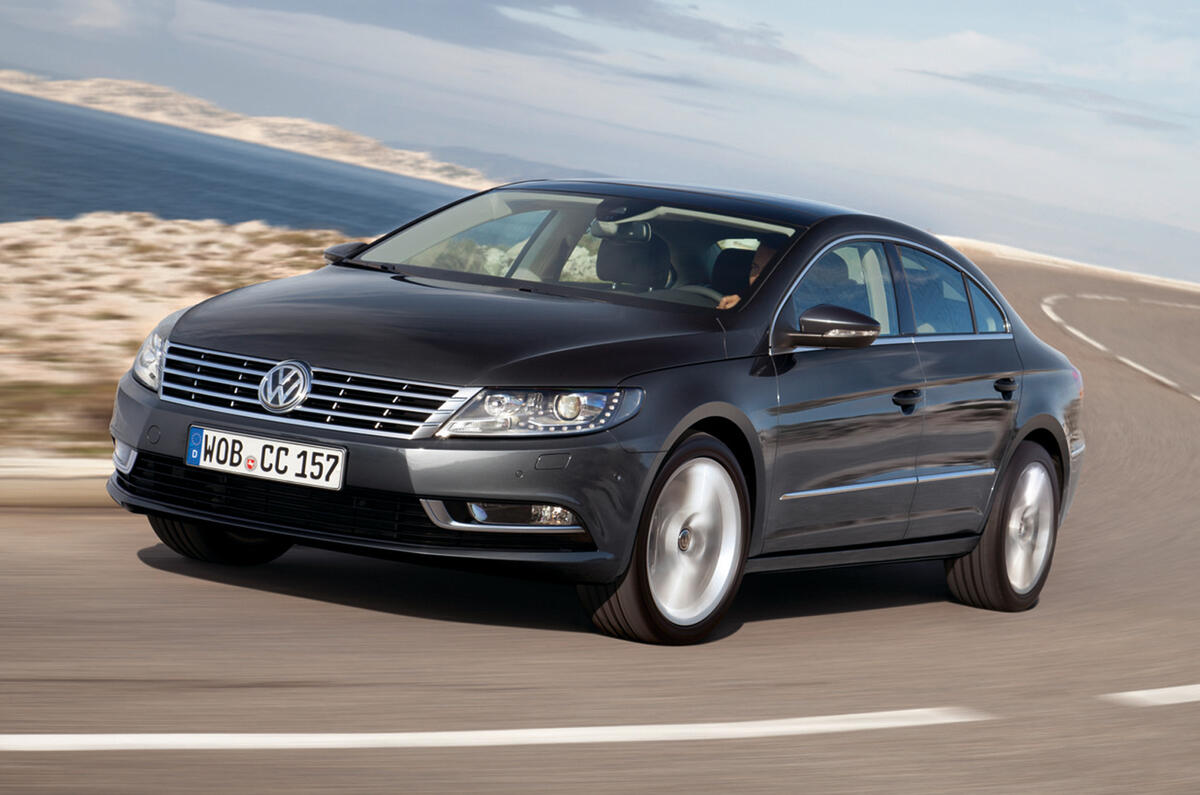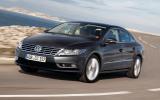What is it?
It’s a revised Volkswagen Passat CC - you’re just not allowed to call it that anymore. VW is keen to give its swoopy four-door saloon an identity of its own, so the familiar Passat name has been dropped leaving the model simply called CC.
While the name has changed, the car itself isn’t radically different. There’s the trademark VW front-end, complete with a new grille and bumper, while at the back there is also a new bumper and LED lights. Inside, there’s an increase in the amount of standard equipment, while a three-seat bench is now standard in the rear, rather than the two individual seats that are optional on the continent.
Engine options include a 158bhp 1.8 TSI and a 207bhp 2.0 TSI on the petrol side, with a 2.0 TDI with either 138bhp or 168bhp offered for diesel buyers. It’s the most potent diesel with a six-speed manual gearbox that we’re testing here.
What’s it like?
The badge may have changed, but the CC is just how we remember it from when it was part of the Passat family: a comfortable, relaxing mile-eater that places the emphasis on refinement above all else.
Indeed, the only non-styling changes of note made to the CC are an increase in the amount of sound deadening in the doors, windscreen, side windows and under floor tray. While the Passat CC was never noisy, the revised model is whisper-quiet on motorway runs.
The main advantage of the 168bhp diesel over the 138bhp version most UK buyers will go for is the addition of the XDS electronic differential, which is now a standard fit to 207bhp TSI and 168bhp TDI CCs. It aims to provide greater traction for more engaging handling when cornering, thus addressing one of the Passat CC’s main criticisms, it’s lack of driver involvement.
In reality, while the CC doesn’t ever appear flustered when pushed, it still offers little reward or encouragement to the driver. Shame, as the engine has more than enough torque for swift progress and acceleration off the line is impressive.
This range-topping GT model comes with adaptive dampers as standard. Body movements are well controlled, it’s the broken road surfaces that cause some problems. The ride is comfortable enough, but is hampered slightly by the weight 18in alloys and low-profile tryes the GT trim level also brings with it.
The motorway is the CC’s natural habitat. Here, it’s a smooth, quiet and a darn refined car that feels more than capable of eating hundreds of miles every day. The engine is also well suited to this environment, and a tall sixth gear aids economy, with the official economy figure of 57.6mpg well within reach.
Should I buy one?
VW has pulled off a clever new trick of appearing to have launched a new car without having really done so. There wasn’t a lot wrong with the Passat CC before these mid-life tweaks, but it now has an identity of its own and is arguably the most desirable model in VW’s range.
It still looks like nothing else in its class, and is hard to position directly next to a main rival. For these reasons, even four years after it first launched, it feels like an antidote to the usual formulaic approach the four-door saloon market, VW’s own Passat included.















Join the debate
Add your comment
Re: Volkswagen CC GT 2.0 TDI
i guess it is horses for courses. personally i wouldnt pay more for an identical car with mildly less boring styling. the original cc (which is neither a 2 door nor a convertible ) was better looking.
however this looks almost as dull as most every other volkswagen and nothing as nice as its a5 cousin.
the interior whilst well made isnt exactly exciting or innovative but this is the vw recipe i guess.
Re: Volkswagen CC GT 2.0 TDI
Like all VW/Audi/Skoda's, this obviously is one extremely dangerous car to drive.
Not only is the outside utterly boring, but so is the dashboard. I fear I'd just fall asleep whilst I'm driving this road appliance.
Re: Volkswagen CC GT 2.0 TDI
People in Britain seem to be unaware of the success of the Phaeton, although it came slowly and mainly in Asia. They made more than ever of them in 2011, more than 10.000 which I guess means more than Jaguar made of the XJ last year. A successor is expected in 2014.